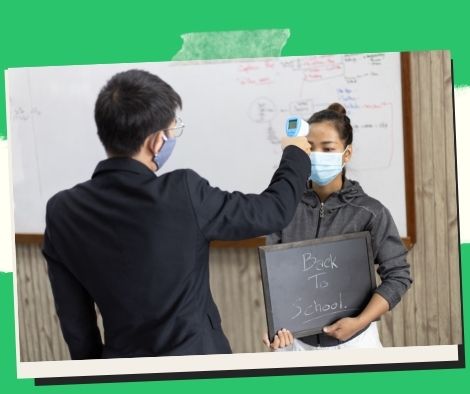
SUCs in a F2F environment will rise as flexible learning persists: CHED
The future tertiary school opening will maintain a flexible learning environment, the Commission on Higher Education (CHED) announced on Wednesday.
Prospero “Popoy” De Vera III, the chairperson of CHED, stated during a virtual press conference that more colleges are anticipated to start offering face-to-face learning opportunities between August and September.
According to CHED data for the preceding semester in January, state universities and colleges (SUCs) participated in in-person learning delivery at a rate of 32%.
Since [coronavirus disease 2019] is under control and there are no spikes, he predicted that when the school year begins, “these numbers will substantially grow since they will be able to make their plans immediately.”
He added that it is up to the SUCs to decide whether or not to adopt an in-person learning setup, therefore they are unable to provide a precise number.
It’s challenging to switch from online to face-to-face communication in two to three weeks since it’s challenging to modify activity schedules right away. “Mahirap kasi na mag-shift na nagsimula ka nang online, bigla kang… What is the best choice will be decided by the schools. Because there are already colleges offering online courses—even before Covid—requiring face-to-face instruction in the classroom is illogical, he claimed,
SUCs are required to follow the health regulations mandated by the local governments as well as those established by the CHED, the health department, and the Inter-agency task force.
Additionally, he acknowledged the impressive vaccination coverage in institutes of higher learning (HEIs).
While the national immunization rate for the general population has recently surpassed 70%, it is already close to 80% for students, making it “eighty-nine percent na pala (already), practically 90% na. We were able to gradually begin lessons because of the high immunization rate in higher education, and we had already begun the athletic competition.
He added that they had achieved a zero-infection incidence among their school athletes through vaccination rates and strict adherence to rules.
De Vera concluded by saying that despite obstacles posed by the epidemic, the administration was able to raise the participation rate in postsecondary education to as high as 33%.
“We have created graduates who did not pay tuition from beginning to end. This is the first batch of graduates who did not pay any tuition or other costs in the previous academic year. Therefore, as of right now, we anticipate that in more than 200 public universities, 1.9 million Filipinos will not be required to pay tuition or other fees, another 500,000 would receive tertiary education subsidies, and just over 200,000 will receive Tulong Dunong. Because we are the only developing nation in the world to have attempted or implemented free higher education, these figures are somewhat astounding, he remarked.
Save/Share this story with QR CODE
Disclaimer
This article is for informational purposes only and does not constitute endorsement of any specific technologies or methodologies and financial advice or endorsement of any specific products or services.
 Need to get in touch?
Need to get in touch?

We appreciate your reading. 
1.) 

Your DONATION will be used to fund and maintain NEXTGENDAY.com
Subscribers in the Philippines can make donations to mobile number 0917 906 3081, thru GCash.
3.) 
4.) 
AFFILIATE PARTNERS

World Class Nutritional Supplements - Buy Highest Quality Products, Purest Most Healthy Ingredients, Direct to your Door! Up to 90% OFF.
Join LiveGood Today - A company created to satisfy the world's most demanding leaders and entrepreneurs, with the best compensation plan today.

 Business, Finance & Technology
Business, Finance & Technology

 Business Technology, Finance Technology & Information Technology
Business Technology, Finance Technology & Information Technology








 MANILA – The Philippine Economic Zone Authority (PEZA) is […]
MANILA – The Philippine Economic Zone Authority (PEZA) is […]